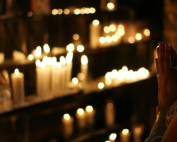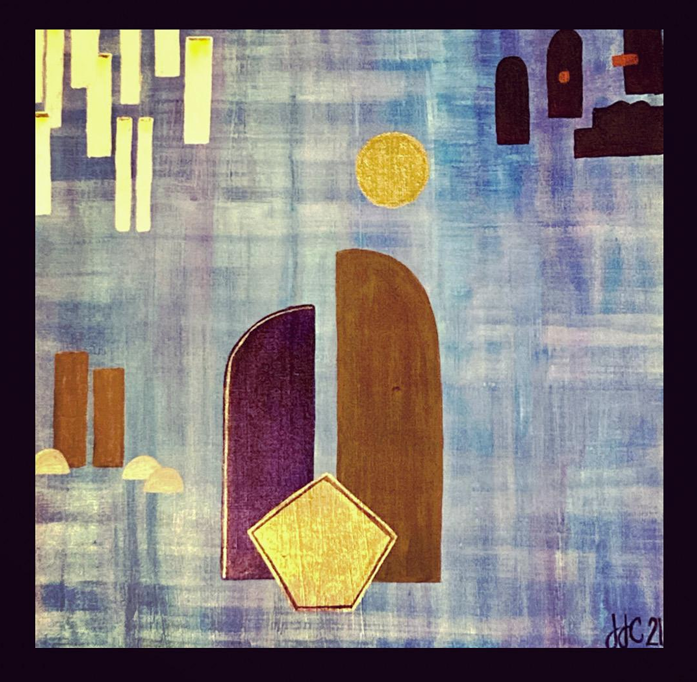Grief and Lent: Holding Sorrow in a Season of Reflection

As a Christian clergyperson, Lent has always been a season of reverence—a time of reflection, repentance, and preparation. It’s a space carved out for stillness and self-examination, a return to God through humility. This year, though, I find myself entering Lent differently—not just as a leader, but as someone deep in grief.
Grief doesn’t wait for Ash Wednesday or resolve by Easter. It lives in the heart year-round. Yet Lent offers a sacred space to acknowledge sorrow—not only the loss of Christ on the cross, but our own personal losses and unfulfilled hopes.
I carry layered grief: the death of my brother, the complicated loss of my mother, and the quiet sorrow of holding space for others while often setting aside my own pain. As clergy, I witness grief regularly. But my own grief waits for rare quiet moments—moments that life’s demands often deny.
Lent, with its focus on mortality, allows us to name what we often hide: “Remember that you are dust, and to dust you shall return.” There is solemnity and tenderness in those words. Grief is not foreign to faith—it’s part of the salvation story. Christ wept at a tomb, anguished in Gethsemane, and suffered on the cross. Ours is a faith that does not deny sorrow but walks through it.
Yet even in Lent, grief rarely fits the time we give it. Life keeps moving—sermons to preach, people to care for, families to tend. Grief often gets pushed aside, and the longing to honor it can feel impossible. But grief insists on being felt—it shows up in exhaustion, in frustration, in fleeting memories that take our breath away.
There is no neat arc to grief. Lent, in its own grace, doesn’t demand resolution. It invites us into the wilderness, to walk with Christ into emptiness and vulnerability. It lets us name the hurt, the unfinished, the burdens too heavy to carry alone.
Naming sorrow is a sacred act—a form of prayer. It’s standing before God with honesty: “This is what I carry.” Psalm 139 says we are “fearfully and wonderfully made.” I believe that means we are so precious that we live in a tension of fear and wonder—for ourselves, and for those we love. Grief reverses that mystery: we release loved ones and remain with fear of the void and wonder at the love that lingers.
Healing isn’t about erasing grief. It’s about making space for it to coexist with love, faith, and daily life. It’s trusting that God meets us in the fragments, in the pain, in the parts of our stories still unfinished.
Lent reminds us: resurrection does not come without loss. While some rush toward Easter lilies, others remain in Holy Saturday—waiting, mourning, wondering. That’s okay. Faith makes room for all of it. Christ’s body was broken before it was made new. We, too, carry sorrow as we seek healing—not a return to what was, but a transformation into something more whole, more honest, more real.
This Lent, I am not giving something up. I am making room—for grief, for memory, for healing not through fixing, but through being held by God in the midst of it all.
May all who grieve find rest in the weariness, space in the busyness, and grace in the wilderness. May we know that grief is not weakness, but love—and may we be met not with answers, but with presence.
Blessed are those who mourn, for they shall be comforted.
Rev. Lavender Kelley is a pediatric chaplain serving at Children’s National Hospital in Washington, D.C., with a focus on supporting children and families through compassionate, relational care.
Click HERE to read Reflections for Advent, edited by FCM Member, Rev. Julia Styles.
Part 1: Sodom and Gomorrah There is a whole category of sex named after a biblical city that was destroyed by God. When I was a teen, the message was simple: God destroyed Sodom and Gomorrah because of homosexuality. The church says so. The English language says so. Except… I actually read the story again
Have you ever wondered why Jesus chose Simon Peter as the rock for which the church is built on? Peter was renamed by Jesus. “Simon (who is called Peter)” (Matthew 10:2). “These are the twelve he appointed: Simon (to whom he gave the name Peter), (Mark 3:13). Greek meaning for Peter is Rock: Πέτρος, Πέτρου,











